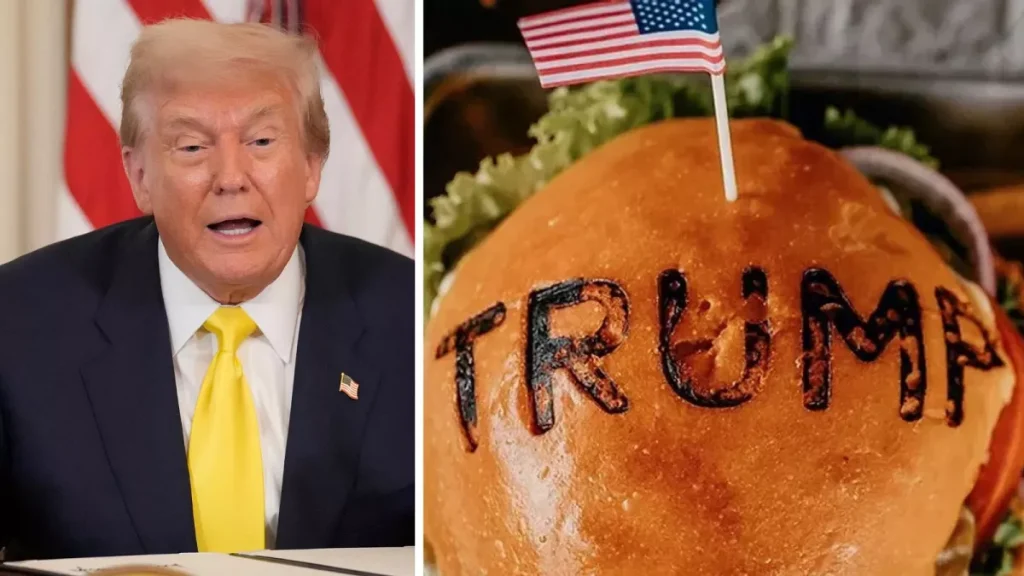The Creator of Texas’s Trump-Themed Burger Joint Now Faces Deportation After ICE Arrest—Politics Didn’t Save Him
Running a restaurant that felt like a political shrine to Donald Trump took a dramatic turn when its co-founder was arrested by ICE and now risks deportation—and that’s exactly what’s unfolding with Roland Beainy.
I remember first driving past one of those Trump Burger locations in Texas. There was no subtlety in the branding: walls covered with Trump posters, slogan-laden décor, even burger buns stamped “TRUMP.” It felt like a bold—or maybe tongue-in-cheek—statement. That attention paid off. The chain, started in Bellville in 2020, expanded into multiple towns around Houston, even spawning a renamed MAGA Burger in Kemah amid a landlord dispute.

But that bold branding didn’t shield its creator from legal trouble. Roland Beainy, 28, a Lebanese immigrant, came to the U.S. in 2019 on a visitor visa. By February 2024, he should have left—and didn’t. In May 2025, ICE arrested him for overstaying his visa and launched deportation proceedings.
It wasn’t just the overstay. U.S. Citizenship and Immigration Services concluded that Beainy had attempted to obtain legal status through a fraudulent marriage—one that didn’t involve living together and lacked validity, even acknowledged as a sham by the petitioner’s own family. That led to revocation of his petition and intensified legal scrutiny.

Despite living out a public celebration of Trump, Beainy couldn’t dodge enforcement. ICE spokespersons made it clear that political beliefs or who he idolized wouldn’t affect the law: “Regardless of what restaurant you own or political beliefs you might have,” enforcement rules still apply.
On Beainy’s side, he told the Chron: “90 percent of the s–t they’re saying is not true,” though he declined further comment on legal counsel advice. Meanwhile, he was granted bond in June and remains out of custody while awaiting a November 18 hearing.
All this unfolds amid legal drama behind the scenes. Beainy is embroiled in lawsuits—one with his Kemah landlord over control of the location later renamed MAGA Burger, and another dispute over business ownership that reportedly involves a missing written agreement and claims of unpaid debts. On top of that, the Trump Organization issued a cease-and-desist letter earlier this year over the use of Trump’s name and likeness.
It’s a wild irony that a restaurant built as a political billboard couldn’t shield its creator from the very system the décor celebrated. The spectacle reveals a lot about how public identity, branding, and real legal exposure can collide.
Whether Roland Beainy gets deported or manages to stay—and what happens to Trump Burger’s future—remains to be seen. But one thing feels certain: in this case, decoration and politics didn’t offer protection from immigration law. It’s a story where branding collided head-on with enforcement, and the result is still unfolding.


